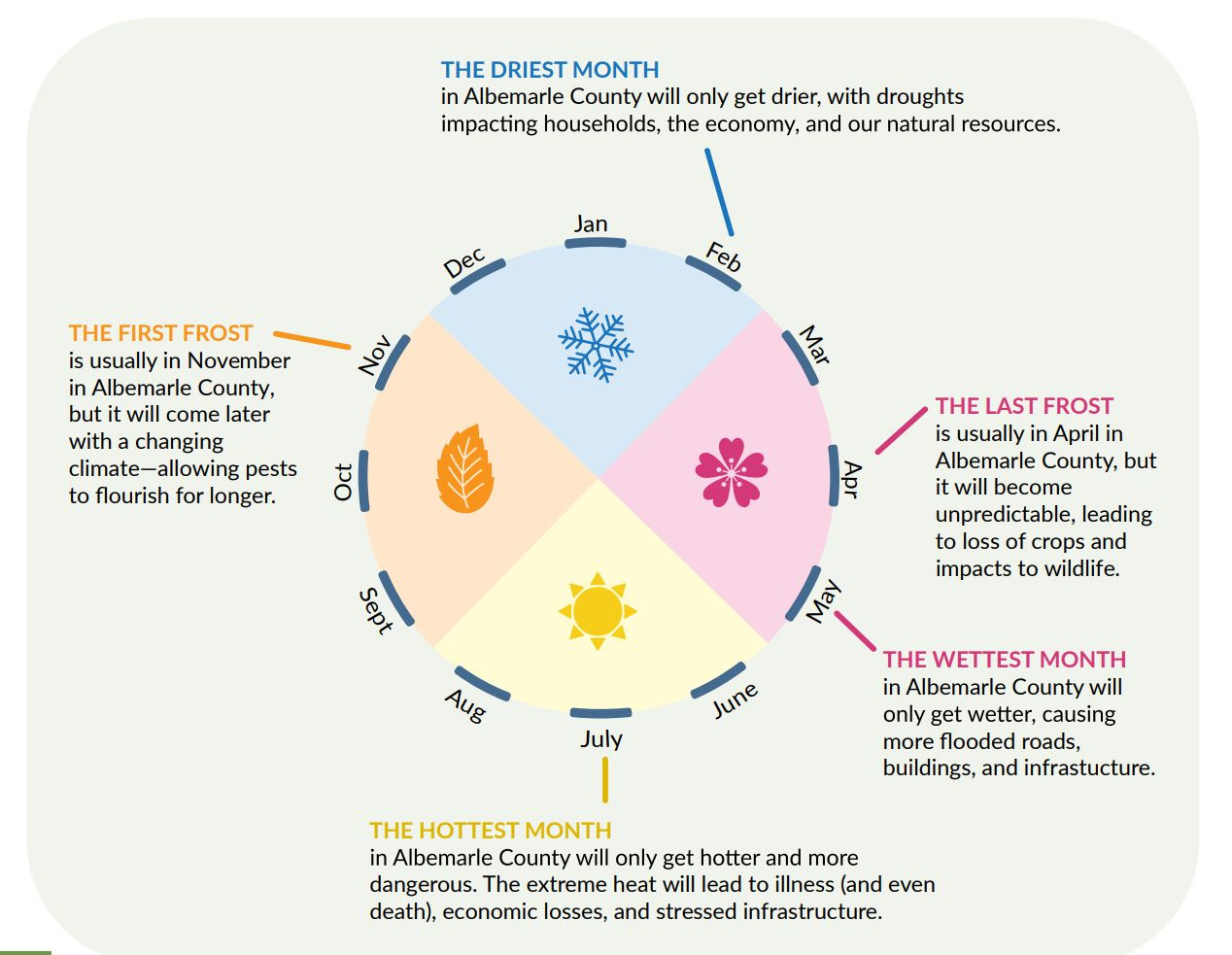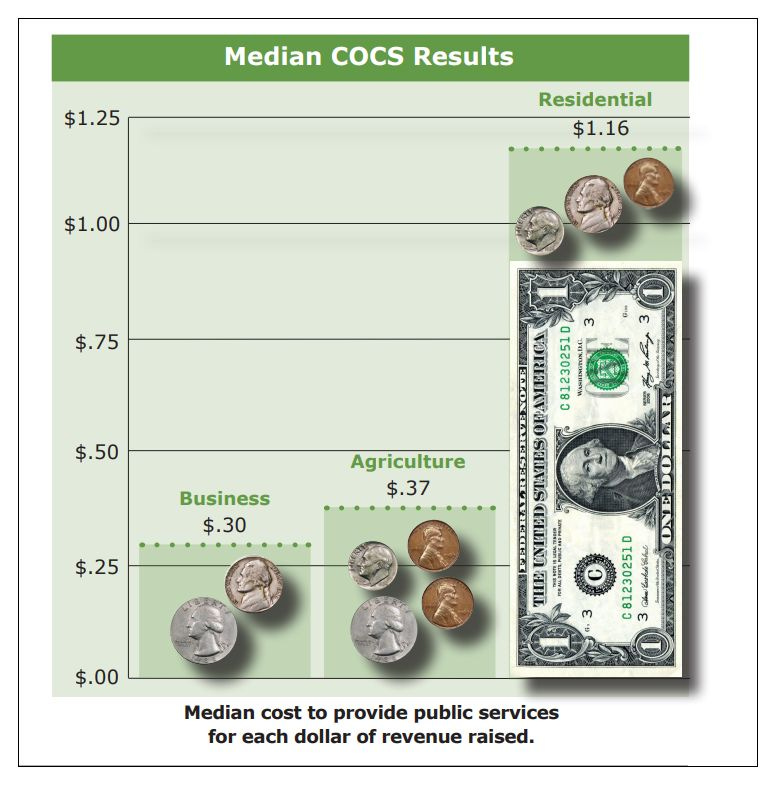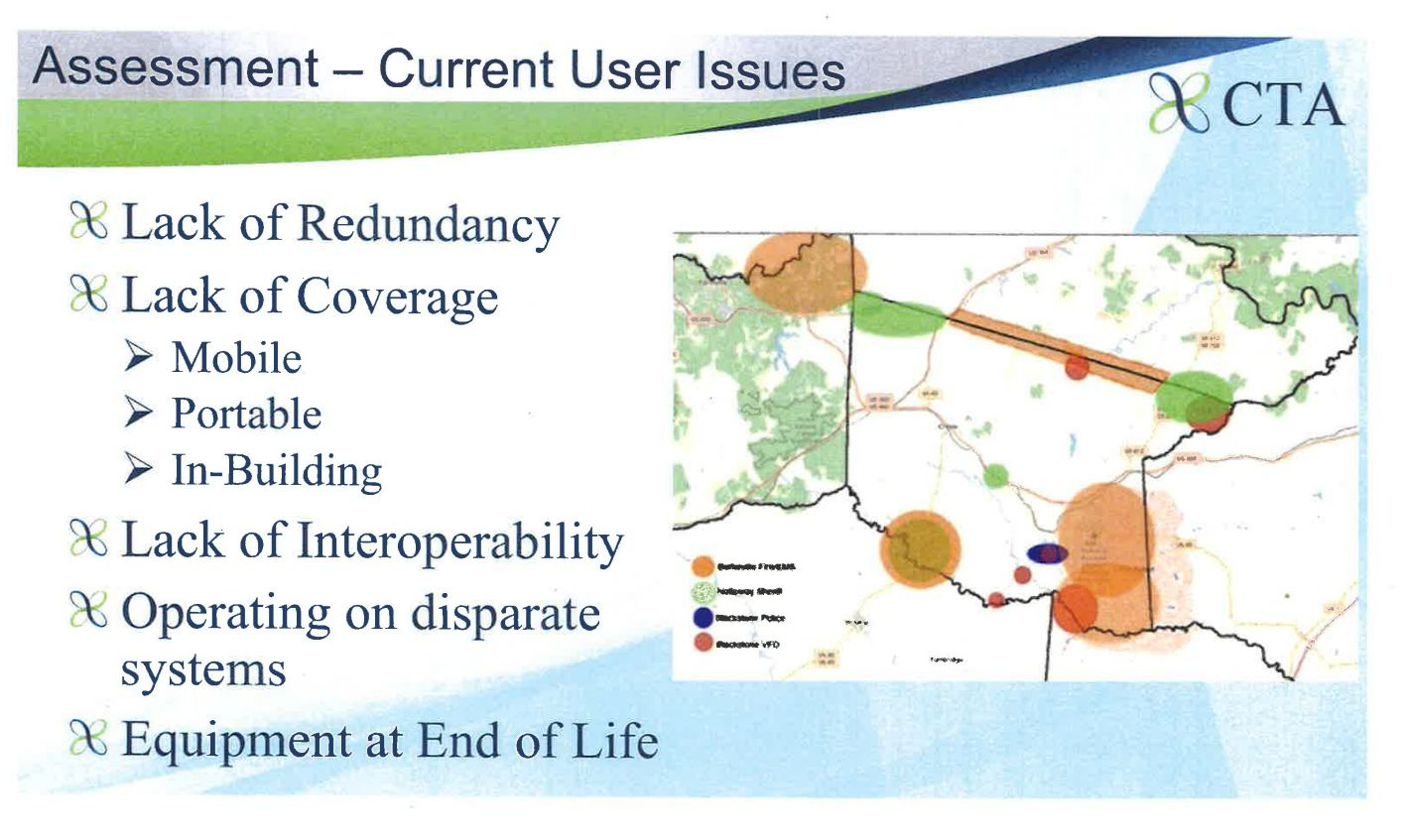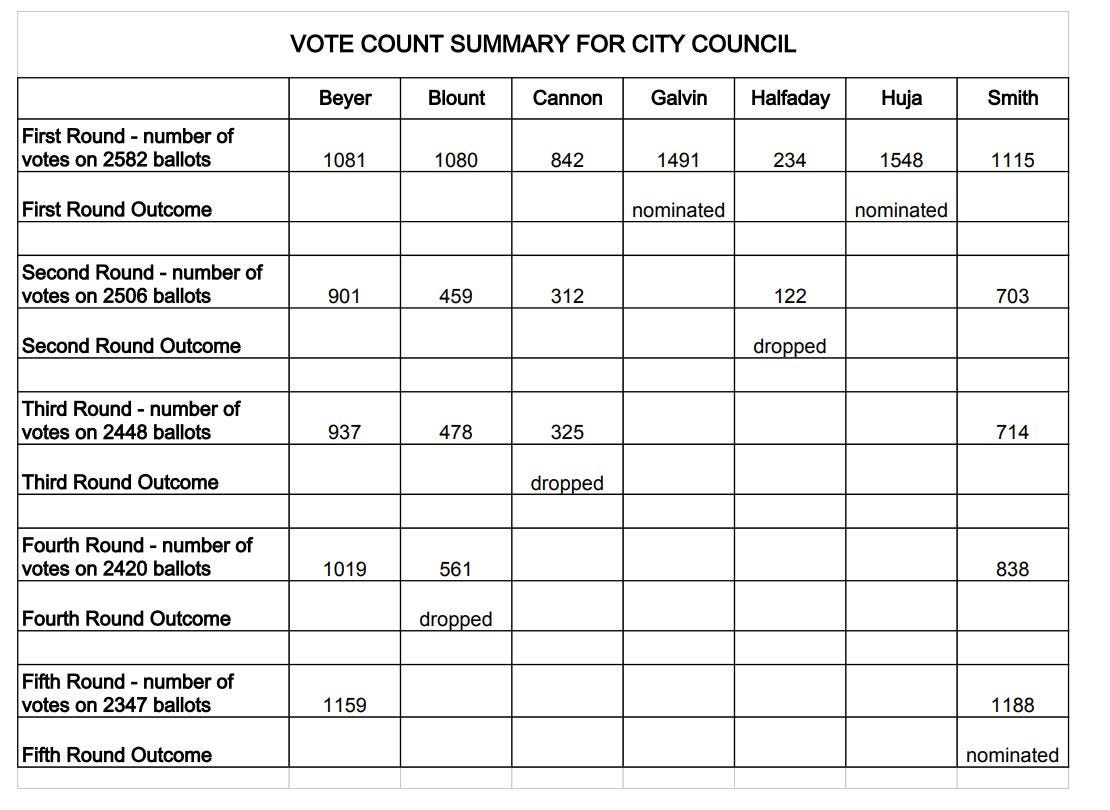Government Glance: Fluvanna to review cost of services study concept; Albemarle to discuss needs to implement ranked-choice voting
The second of two newsletters this week on local government meetings in the Fifth
This is the second of two newsletters this week about items coming up at local meetings of elected bodies in Virginia’s Fifth Congressional District. This is an experiment in journalism as I try to learn more about what happens at the local government in the three cities and 21 counties within the new boundaries.
I’ve been doing this now for six months, and look forward to seeing what I might add in the future as I become more efficient at all of the work I do. I also publish Charlottesville Community Engagement, but all of it happens under the bigger umbrella of Town Crier Productions. My interest has always been on the decisions made at the local level.
Please share this with people you think might want to learn as I do these reports. The audience is growing slowly, but there are several dozen of you reading every week. Thanks for doing so! Now, on to this week. Some of it was already published in the Week Ahead, but I’ve also included a story I did for today’s Charlottesville Community Engagement at the end.
Wednesday, November 16, 2022
Albemarle County Supervisors to learn of climate risks
The Albemarle Board of Supervisors will meet at 2 p.m. in Lane Auditorium at the county office building at 401 McIntire Road. That’s an hour later than usual. (meeting info)
In the afternoon session, Supervisors will see a presentation on the Climate Vulnerability and Risk Assessment. They adopted a Climate Action Plan in October 2020 that called for this work to be done in order to prepare for the increased extreme weather events predicted as part of a shifting global climate.
“To build local resilience to climate change, it is first necessary to assess how climate change will affect us here in Albemarle County,” reads the staff report.
The firm Sobis was hired to conduct the work with contributions from both the Piedmont Environmental Council and Resilient Virginia. The work was released this past June and there is now a 20 page summary. (read the report) (read the summary)
(In full disclosure, PEC is an advertising sponsor of this newsletter)

The second item in the afternoon pertains to what the Electoral Board would need to implement ranked-choice voting. See below for the full article I wrote on the topic. Or just go to Information Charlottesville!
In the evening, there is a public hearing for the expansion of the Clifton Inn from 14 guest rooms to 50 rooms and Collina Farm from 5 rooms to 21 rooms. This requires a rezoning from Planned Residential Development to Rural Area. The Albemarle Planning Commission unanimously recommended approval on August 23. (staff report)
Some items of note on the consent agenda:
Supervisors will adopt a resolution to call for a public hearing on sign-on bonuses for new police, fire, and rescue personnel. (staff report)
Supervisors will adopt a resolution of intent to amend the zoning code related to solar energy systems. The Berkley Group is a consultant firm hired by the county to “modernize” the zoning code. If approved, this would direct the company to further review additional standards for the placement of utility-scale solar projects. (staff report)
There’s a financial report for the 3rd quarter with many different points of information (staff report)
There’s a certificate of occupancy report for the third quarter as well as a building report for the third quarter.
What’s the cost of growth in Fluvanna County? Supervisors to discuss
The five member Fluvanna Board of Supervisors meets at 7 p.m. in the Carysbrook Performing Arts Center in Fork Union. (agenda packet)
There will be a special presentation commemorating the late Gequetta Murray-Key, a Planning Commission and School Board member who died in October.
There is a public hearing for a property owner that wants to withdraw about 20 acres from an agricultural-forestal district. The landowner wants to be able to “generate the funds needed to buy out my partner.”
There’s also a name change for a street from Starling Drive to Grass Court. There’s also action to allow a deer hunt for disabled hunters at Pleasant Grove Park.
“The sheriff’s office continues to believe that it is necessary to reduce the numbers of deer on Pleasant Grove and that the best means of such control is through a managed hunt under the auspices of Wheelin Sportsmen, a group affiliated with the National Wild Turkey Federation,” reads the staff report from county attorney Frederick W. Payne. “The proposal is to permit a small (7-10) group of hunters to take deer during the current hunting season. The hunt will be confined to carefully selected areas of Pleasant Grove on Thursday, December 29, 2022.”
There will be presentations from the Virginia Department of Transportation, the Blue Ridge Cigarette Tax Board, and the cost of community services.
“The original estimate of revenue for January through June 2022 was $103,217, which was based upon an estimated number of anticipated packs sold,” reads the staff report on the cigarette tax from County Administrator Eric Dahl .”The actual FY22 revenue for that period came in at $81,885.”
Elected officials in growing communities often want to know what the cost of providing new services has been and will be. The American Farmland Trust developed a model known as the Cost of Community Service in the mid-1980’s to calculate various metrics related to growth.
“The primary goal is to measure fiscal impact, which attempts to estimate the net fiscal effects (revenues generated minus service expenditures created) of different types of new development on a community,” Dahl wrote in a staff report. “The end result of the model is a ratio of total expenditure required by land use to total revenues generated by land use.
In general, business and agricultural uses produce more revenue than it takes to provide services. Dahl will point out the limitations of such a study, such as being able to distinguish between different housing types. He’ll ask Supervisors if they want a more detailed review.

Charlotte County Supervisors to meet
The seven-member Charlotte County Board of Supervisors will meet at 1:30 p.m. in the County Administration Building in the Board of Supervisors Conference Room. (packet)
Anyone interested in compensation studies for local government employees in Virginia should take a look at the minutes for the October 11 meeting. Dr. Stephanie Davis of Virginia Tech presented her findings and there was a long conversation. You can follow most of in the minutes and I thank Charlotte County Supervisors for directing their clerk to provide a thorough account of what happened.
Other things from the agenda packet:
We learn that Supervisors did end up funding its share of a new historic marker at the border with Lunenburg County. I had a sentence in the October 10 version of this newsletter.
Charlotte County may use $30,000 in tourism-related American Rescue Plan Act funding to create two gateway signs at each end of U.S. 360. This is a different pot of money than the allocation that Charlotte has received.
Most of that money is going to two broadband applications through the Virginia Telecommunications Initiative. Staff is working on a proposal to use the rest to buy a new trash truck.
Charlotte County is working with the Commonwealth Regional Council to update the Comprehensive Plan. As part of that effort, the Berkeley Group has been hired to work on renewable energy policies.
The next stuff is actually about Lunenberg County, but it’s all from the Commonwealth Regional Council. I think the next meetings I want to post here will be the planning district commission meetings. The next work session of the CRC is November 22. But for now:
From the we learn that the town of Kenbridge was awarded $49,800 from Virginia Economic Development’s Brownfields Assistance Fund to pay for remediation for removal of an underground storage tank on a vacant commercial property. The town also got $79,750 from the Virginia Outdoor Foundation’s Preservation Trust Fund to build a connector trail in the town park.
Kenbridge also received nearly $2 million from the Virginia Department of Forestry’s Trees for Clean Water Grant to plant trees as a buffer between the soccer field and the wastewater treatment plant.
Thursday, November 17, 2022
The Nottoway County Board of Supervisors will meet at 7 p.m. in the General District Courtroom at 328 W. Courthouse Road in Nottoway. (packet)
After the invocation and the Pledge of Allegiance, the minutes will be approved as will the agenda. Then there will be “Delegations from the Public” where people can have up to five minutes to speak.
The only public hearing today is for “Erroneous Assessment Refunds.” Other communities in the Fifth District have granted staff the ability to make tax refunds to those who were overcharged. The idea is to reduce the time it takes to return money back to property owners and others affected. Now, Nottoway Supervisors will consider allowing the treasurer to make refunds up to $2,500.
The next section of the meeting will be spent with various presentations and reports.
Under unfinished business, there will be an update on the Cox Road water project as well as action on upgrading the public safety communications.
Under new business, there is a contract with a firm to conduct the reassessment. There’s also a resolution for Responder Safety Week.

Albemarle Supervisors exploring ranked-choice voting
Today the Albemarle Board of Supervisors will discuss what the Electoral Board might need if a directive was given to adopt an alternative method of selecting candidates. Earlier this month, Delegate Sally Hudson (D-57) briefed the elected officials with control over elections policy on what’s known as ranked choice voting.
“Ranked choice voting is an election reform that is now being adopted across the country, both coasts and every in between,” Hudson said.
Hudson said ranked choice would encourage participation both by voters and by candidates who might feel they have a better chance of making the ballot. She also said this method would elect people who can build consensus.
“Consensus builders who are invested in the very real work of bringing people together to get good governing done,” Hudson said. “That’s what has motivated me to be so passionate about this topic for some years now.”
Under ranked choice voting, people select more than one candidate.
“You get to rank the candidates from most to least favorable,” Hudson said.
Hudson said the state of Maine has been using ranked-choice voting since 2018. There’s a whole list of Frequently Asked Questions about the process there. In many cases, there are still only two candidates for a particular office.
“But in the event that more than two candidates run, the ranked choice voting really starts to come into play,” Hudson said.
Voters do not have to rank candidates if they do not want to do so. If no candidate wins a majority on the first round of voting, a run-off election can be counted immediately by dropping out candidates at the bottom. If there are several candidates, this process can take many rounds.
“A ranked choice or an instant run-off election is just like the run-off elections that have been conducted in the south for years,” Hudson said. “You just don’t drag everybody back to the polls and make them cast another ballot to determine the winner in the head-to-head final race.”
There’s even an example of how the concept works in recent history. On August 20, 2011, the Charlottesville Democratic Party selected their nominees for City Council in a “firehouse primary” and seven candidates were on the ballot. Voting took five-rounds.

Write-in candidates could still play a role. In 1993, Sally Thomas won election to the Board of Supervisors on a write-in vote for the Samuel Miller District. In 2019, a write-in candidate for the Rivanna District who failed to qualify for the ballot still received a third of the vote.
Legislation carried by Delegate Hudson in 2020 passed the General Assembly and authorizes local government bodies to authorize the use of ranked-choice voting for local office. It’s up to the local body to determine how far they want to go. (HB1103)
“Whether that ordinance could include primaries, general elections, or both, the state code is flexible on that,” Hudson said.
Hudson said the county’s costs would be to adjust the voting equipment to handle the counts. She said all vendors are offering the service.
“The county would need to update its ballot scanning software if it wanted to offer ranked choice next year,” Hudson said.
And that’s the conversation supervisors will have tomorrow. Hudson said she would defer to Registrar Lauren Eddy about the costs for the update. She said parties would like to know if this method is a possibility for next year.
One option would be to eliminate party primaries in favor of a free-for-all in the general election.
The system would also be moot if no one wants to run. All three of the Supervisors elected in 2021 ran unopposed including first-term Supervisor Jim Andrews. He said he was in favor because it may spur more to seek office.
“People’s decisions to run as candidates can be impacted by ranked choice voting just as much as the electorate’s ability to choose among the candidates,” Andrews said.
Hudson said more people have run in New York City’s 51-seat council since ranked-choice was adopted there and it has made a difference.
“They’ve never had more than I think 18 women and the year after they adopted ranked choice, they have the first majority women city council and the vast majority of those are women of color.”
Further discussion is scheduled later today in the Board of Supervisors’ meeting.


